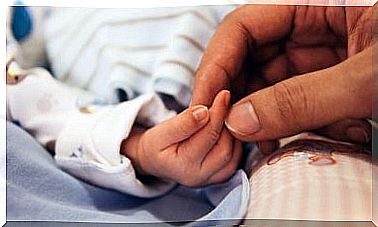How Many Weeks Have I Been Pregnant?

Along with this, a few others come up, for example why pregnancy is counted from the last period. Or whether there is a very precise answer to the question ” How many weeks have I been pregnant ?” gives. And is it true that it takes exactly 9 months to give birth?
In order to answer the question “How many weeks have I been pregnant” and a few more, we have put together some facts about pregnancy and the time associated with it in this article.
Knowing how far you are is important to get the right medical exams. It will also help you better understand the changes in your body and your baby’s growth.
Here are some basic timing concepts that are useful in understanding pregnancy and its stages. As you learn more about it, you will also have new questions. So don’t hesitate to ask for additional information.
- The pregnancy phase: This is the period in which the fetus grows. Or in other words, the length of time the baby is in your body and growing. Knowing this is important so that its development can be properly observed and assessed.
- Premature birth: a premature birth is a birth that takes place before the 37th week of pregnancy
- Full-time pregnancy: This describes the entire period of pregnancy. This means that your baby is fully developed and ready to be born. This happens between the 38th and 42nd week.
As interesting information: How far you have progressed in pregnancy is always stated in weeks. This is the most accurate way to determine the time of pregnancy you are in. This will be difficult to grasp in months at first, but you will quickly get used to this “language”.

How many weeks have I been pregnant? You count from the last menstruation
You may be wondering why counting from the last period when fertilization took place after that. It’s very simple: we mostly don’t know the exact day it started, so according to the protocol, it is more accurate to count the last day of menstruation as the first day of pregnancy.
This will give your pregnancy about an extra two weeks. Although ovulation occurs around 15 days after the last period, the ideal time to conceive varies from woman to woman.
There are also pregnancy tests available that tell you not only if you are pregnant, but also for how long – at least roughly.
They are not 100% exact, but you can limit the period on a weekly basis. You can get it in any drugstore and can do the test in the comfort of your own home.
Of course, the doctor or your gynecologist can tell you most precisely what is going on.
The ultrasound
When asked “How many weeks have I been pregnant?” an ultrasound gives the most satisfactory and most precise answer. It basically allows a look into the uterus.
You will have several ultrasound exams during your pregnancy. You can see how your baby is growing, you can hear his heartbeat and you can also find out whether it will be a boy or a girl. The baby can also be measured by an ultrasound, which in turn is useful for determining the length of the pregnancy.

Some women ask their doctor questions to find out how far along they are. When do you start counting pregnancy? Why is it said that pregnancy lasts 9 months? How many weeks have I been pregnant? Here are the questions.
Pregnant for 9 months
It is not quiet right. A full pregnancy lasts between 38 and 42 weeks. If we calculate every month with 4 weeks, then we end up with 10 months. Why is that?
Because we start counting with the beginning of the last menstruation, we allow for an additional 2 weeks, because fertilization usually takes place during ovulation, which happens roughly in the middle of the cycle.
We recommend that you contact your gynecologist or midwife with any questions you may have. They are experts and can best tell you what you want to know. Your medical team is there to accompany you through the pregnancy as well as possible.









